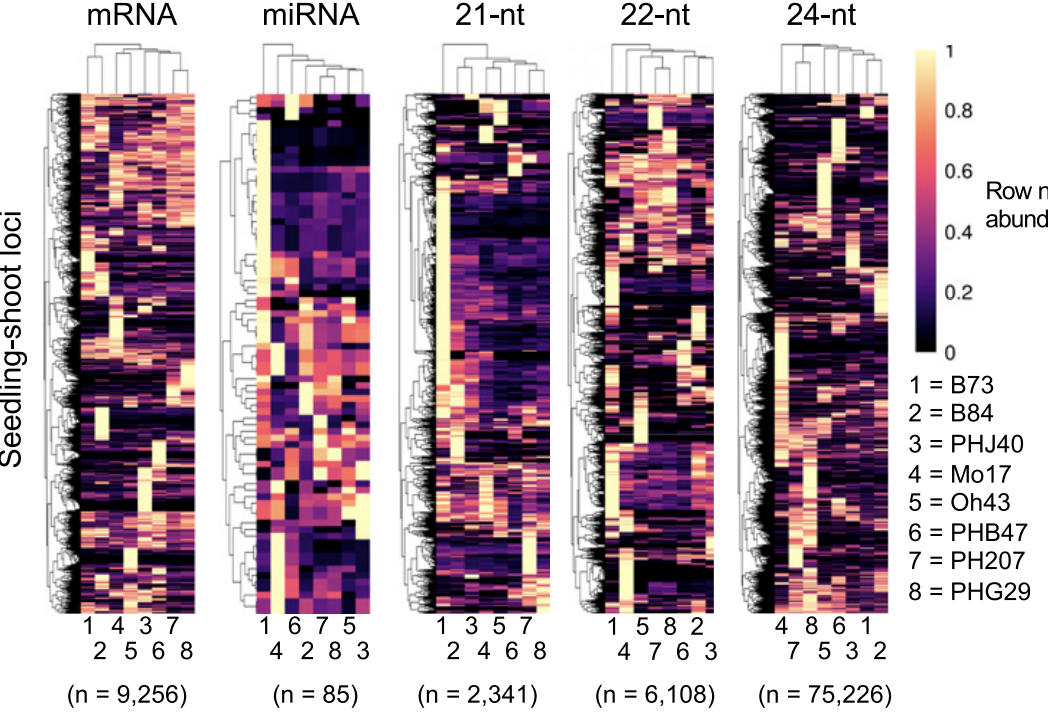Small RNAs (sRNAs) regulate gene expression, play important roles in epigenetic pathways, and are hypothesized to contribute to hybrid vigor in plants. Prior investigations have provided valuable insights into associations between sRNAs and heterosis, often using a single hybrid genotype or tissue, but our understanding of the role of sRNAs and their potential value to plant breeding are limited by an incomplete picture of sRNA variation between diverse genotypes and development stages. Here, we provide a deep exploration of sRNA variation and inheritance among a panel of 108 maize (Zea mays) samples spanning five tissues from eight inbred parents and 12 hybrid genotypes, covering a spectrum of heterotic groups, genetic variation, and levels of heterosis for various traits. We document substantial developmental and genotypic influences on sRNA expression, with varying patterns for 21-nucleotide (nt), 22-nt, and 24-nt sRNAs. We provide a detailed view of the distribution of sRNAs in the maize genome, revealing a complex makeup that also shows developmental plasticity, particularly for 22-nt sRNAs. sRNAs exhibited substantially more variation between inbreds as compared with observed variation for gene expression. In hybrids, we identify locus-specific examples of nonadditive inheritance, mostly characterized as partial or complete dominance, but rarely outside the parental range. However, the global abundance of 21-nt, 22-nt, and 24-nt sRNAs varies very little between inbreds and hybrids, suggesting that hybridization affects sRNA expression principally at specific loci rather than on a global scale. This study provides a valuable resource for understanding the potential role of sRNAs in hybrid vigor.

Variation and Inheritance of Small RNAs in Maize Inbreds and F1 Hybrids
Crisp PA, Hammond R, Zhou P, Vaillancourt B, Lipzen AM, Daum C, Barry KW, de Leon N, Buell CR, Kaeppler SM, Meyers BC, Hirsch C, Springer NM
2010.
Plant Physiology